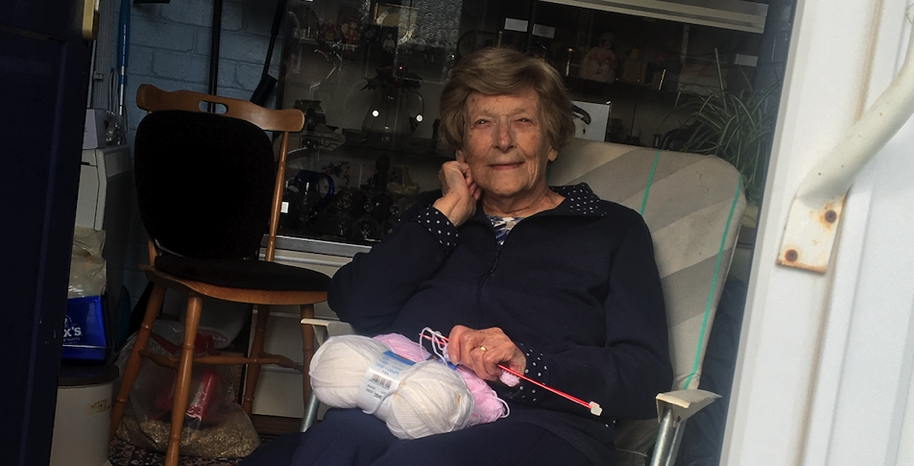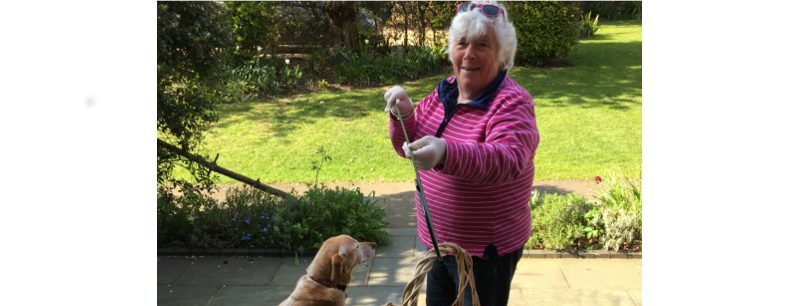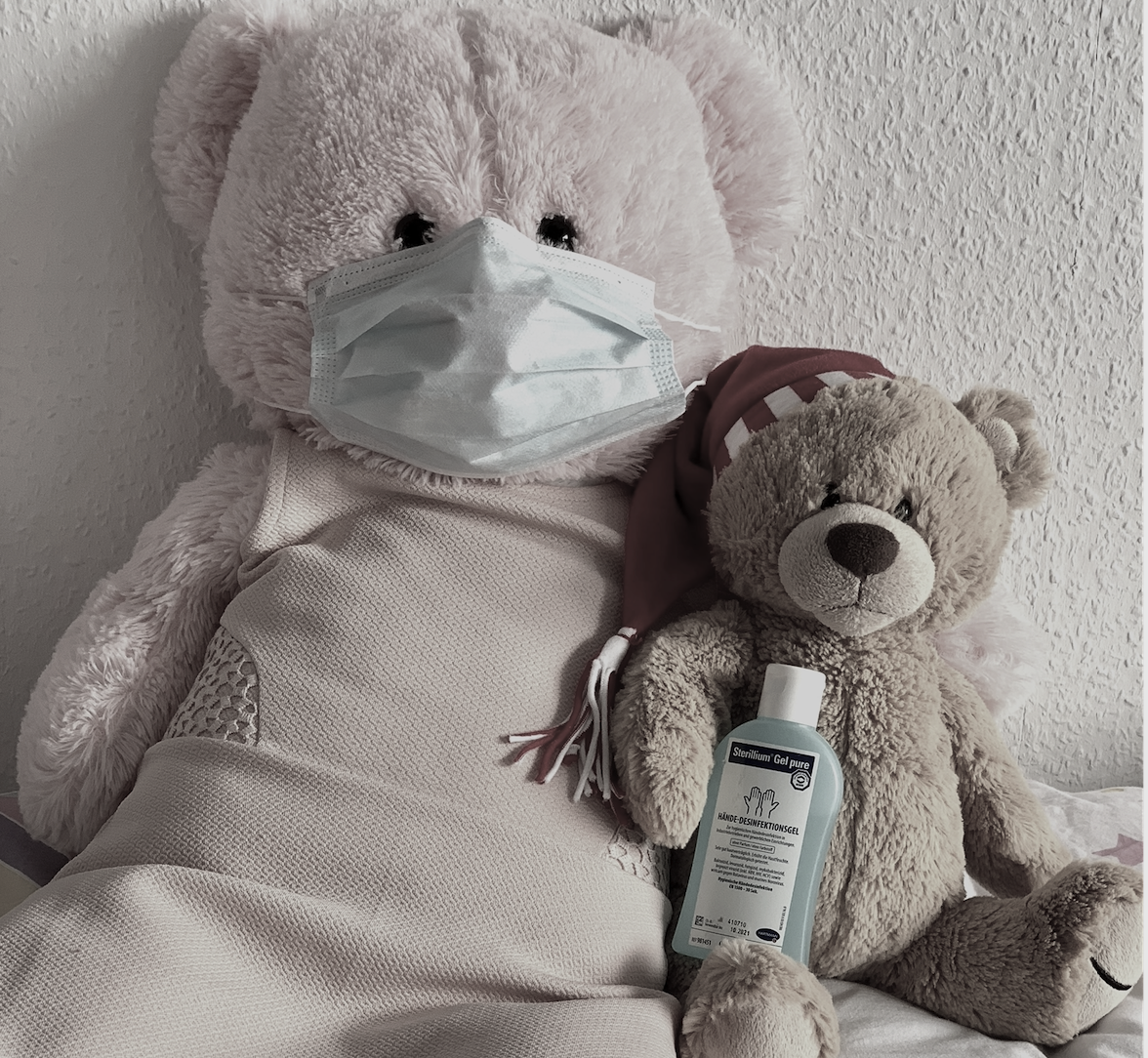B, 93 and truly an unsung hero!
Here is my beautiful and dear friend B, 93. Her porch is the perfect place to sit and knit with the front door open, protecting her in the warmth of the bungalow, but also allowing the sunshine in.
For many years, she has kept herself gainfully employed (for free) knitting and generously donating countless little hats and shawls, forearm sleeves and tiny comforters for premature babies at Great Ormond Street Hospital.
Since Lockdown, she has been doing the same thing for the babies in Addenbrookes Hospital Neonatal Unit. Doing it gives meaning to her life and stops her from getting too bored. She has also knitted a number of wonderful jumpers for my grandson with great love – and which we love. With no Mum of my own to knit for him there is something super special about a surrogate Great Grandmum’s handiwork.
Whenever I visit B on sunny days, this is where I will always find her. She leaves a foldaway deckchair for me outside on the path and I sit (at a safe social distance of course) and we chat and laugh together for an hour or more.
She had a very sad and challenging upbringing and many more difficult experiences as an adult, many of which I have had the privilege of listening to, but I have never heard her complain once. She is full of wisdom, kindness and spirit and is a SuperAdult in every respect.
Sarah Reed, April 2020.


